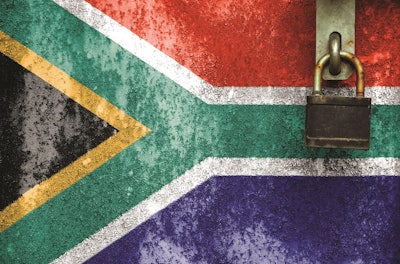
Poultry production in South Africa continued to rise over the first half of 2021, prices rose and imports declined. While this may all be positive for the country’s chicken producers, the industry is not without its issues. Imports of chicken from one major supplier, for example, have already reached their highest level since 2018.
Latest data from South African Poultry Association (SAPA) shows that the expansion in output achieved over the last five years continued into 2021. For the first five months of 2021, production was 5.6% higher than the same period in 2020, while prices were up by 9.5%.
South Africa’s producers slaughtered a weekly average of 21.2 million birds over the period, up from 20.45 million in 2020 and up over 18% compared with 2017.
Alongside this increase imports have declined. Over the same five-month period, imports equated to 22.9% of production, down from 26.1% last year.
Issues persist
The industry, however, has not been without its problems. Izaak Breitenbach, general manager of SAPA’s broiler organization writing in the October/November 2021 edition of association’s official magazine Poultry Bulletin, notes that the previous months had taken their toll on the country’s poultry producers.

In particular, he pointed to riots in KwaZulu-Natal, said to be the worst since the advent of democracy, and the cumulative impacts of highly pathogenic avian influenza (HPAI) and COVID-19.
The industry has suffered reduced demand due to lockdowns, made worse by July’s unrest and looting. This not only caused significant industry losses but triggered a second wave of HPAI.
While Breitenbach praises the way in which the private and public sectors handled these difficulties, they, nevertheless, highlighted the need for greater security at production facilities, distribution centers and shops.
Like poultry producers around the world, the South African industry has also had to confront higher input costs. In May 2021, the cost of maize and soya beans reached a record high. While feed costs have varied, increases of over 40% have occurred during the year.
Producers have not always been able to pass all of these increases on. For example, in July, fresh chicken prices were lower than 12 months earlier, although the price of frozen chicken was 14% higher.
HPAI
A new outbreak of HPAI was detected in poultry flocks in March 2021, however, the country is now benefitting from a new way of handling the disease, and this is said to already be providing valuable lessons for the future.
An expert taskforce has been established by the Ministry of Agricultural Land Reform and Rural Development to examine animal biosecurity, with a special focus on HPAI, food and mouth disease and African swine fever. The task force is charged with examining public/private partnerships, bringing private sector experts together with government officials to tackle the issues facing the industry.
Broiler trade
Imports are an ongoing issue. Chicken meat imports may have been in decline since 2018 but now, the industry fears, the tide may be about to turn.
Brazil, in particular, is sounding alarm bells, with imports over the first seven months of this year reaching their highest level since 2018. There are also fears that a number of European exporters will re-enter the market now that they are avian influenza free.
While the industry may be concerned, it has a number of tools at its disposal. In particular, SAPA points
to the Poultry Industry Master Plan, another public/private initiative, this time with a focus, amongst other areas, on trade measures to support the local industry. Amongst achievements to date have been working with the South African Revenue service – as illegal trade evades duty payment. Another success has been progress against dumping.
The country’s International Trade Administration Commission, tasked with fostering economic growth and development, has recommended extending anti-dumping measures against Germany, the Netherlands and the UK for a further five years. Next on its list will be renewing duties on U.S. product, due to expire in 2022. SAPA application to the commission for new antidumping measures against Brazil, Denmark, the Republic of Ireland, Poland and Spain is being investigated.
















